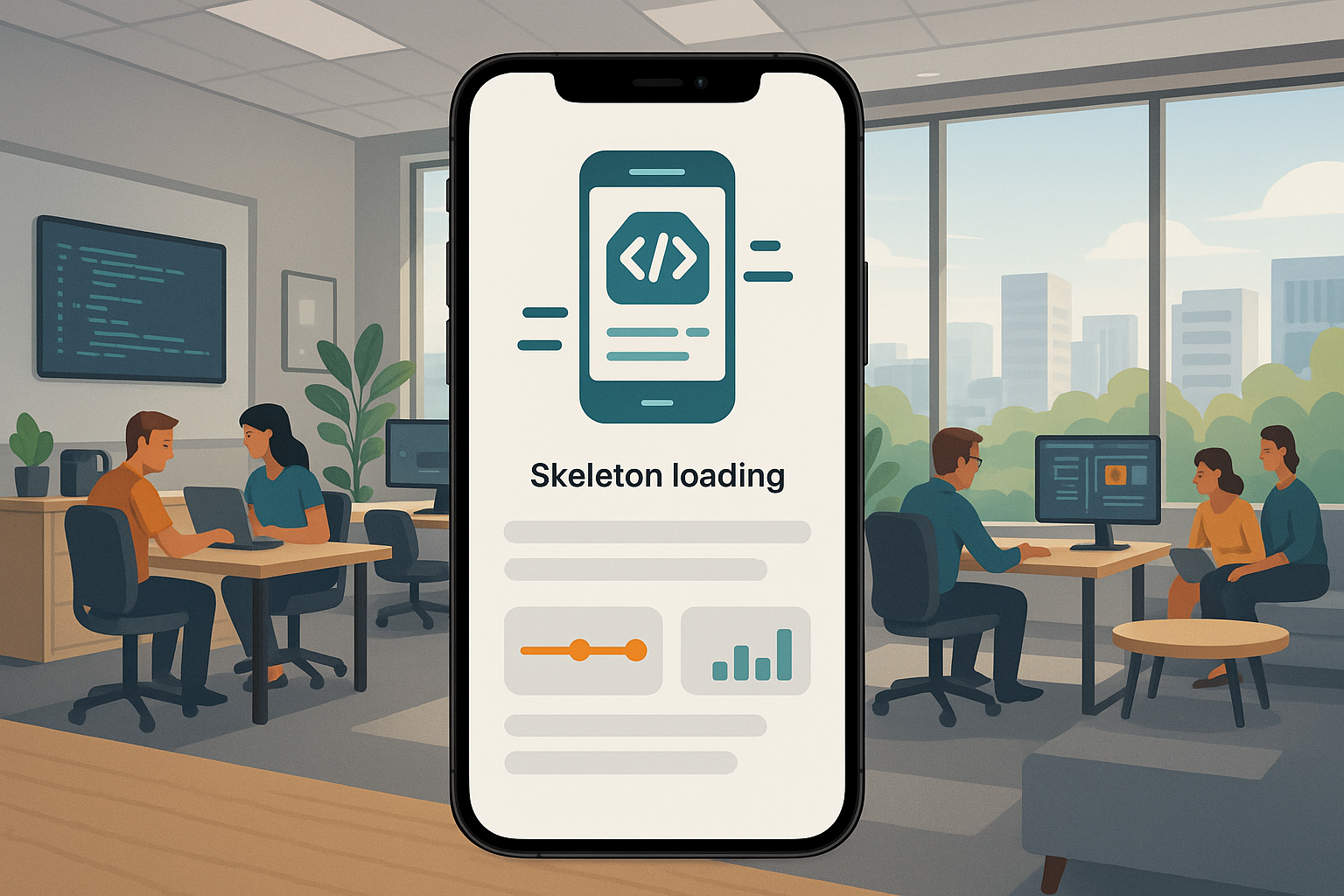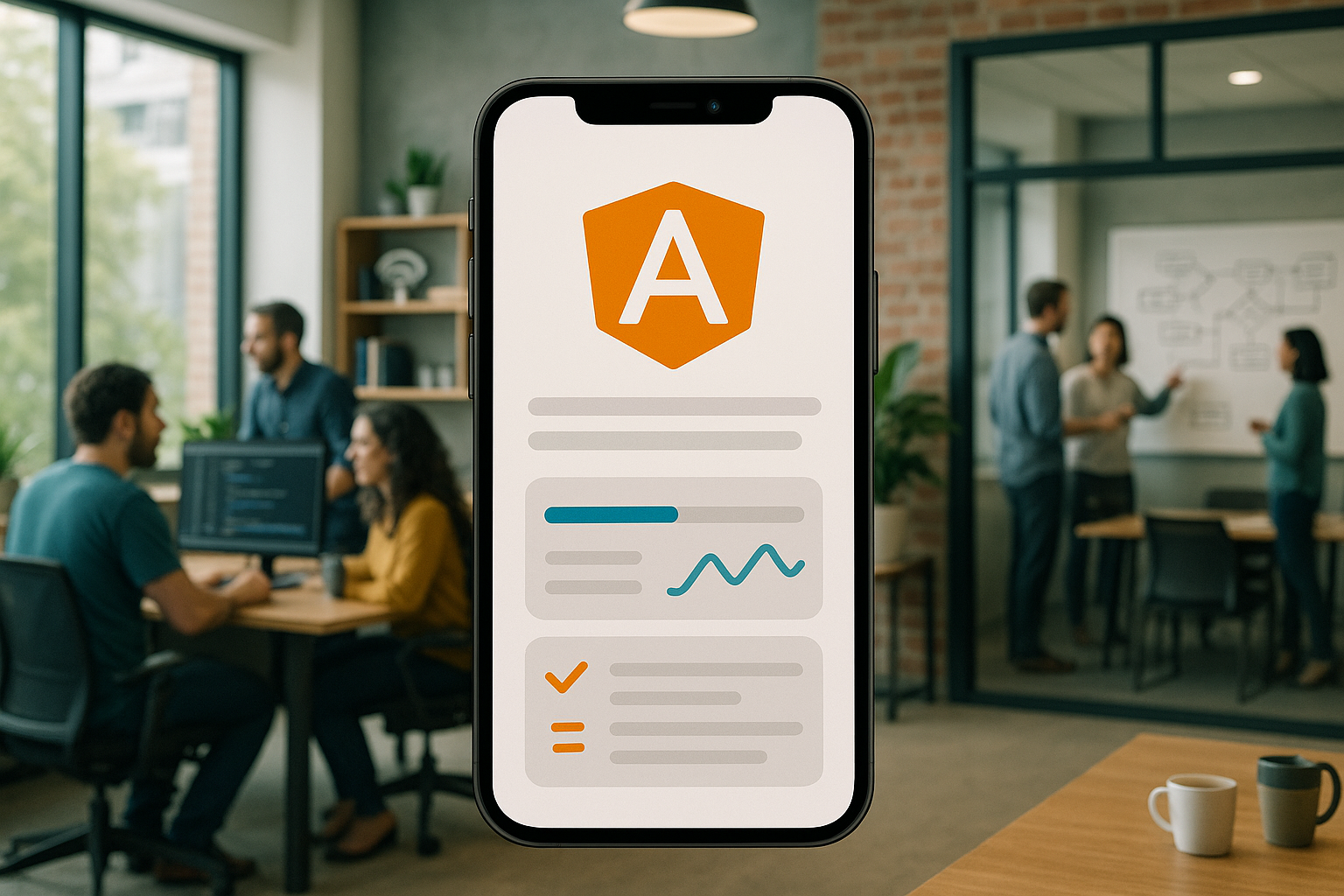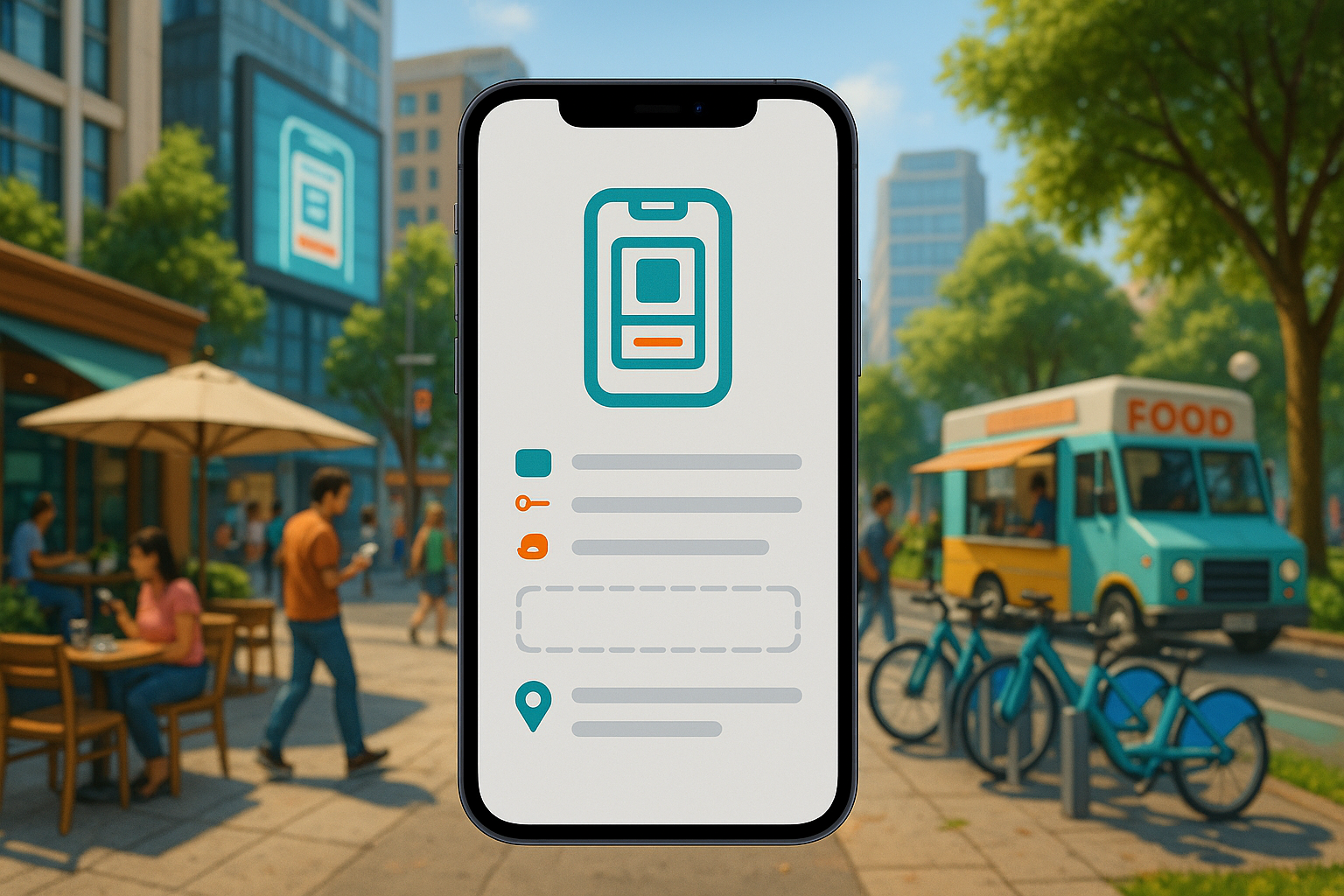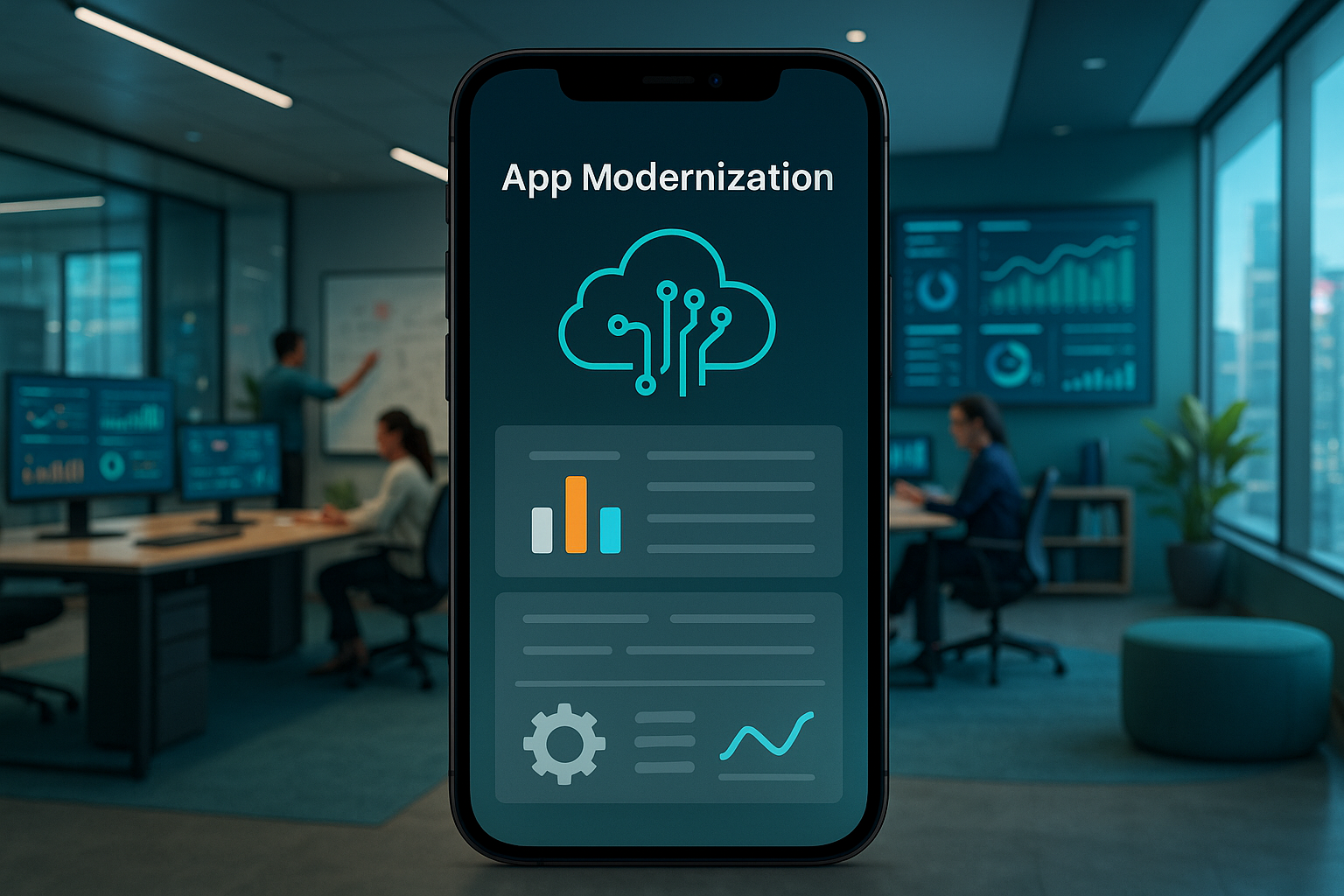Introduction
The promise of cross-platform development is alluring for any business, from nimble startups to established enterprises. Building an application once and deploying it across both iOS and Android saves significant time, resources, and capital compared to developing two separate native applications. Apache Cordova is a long-standing and powerful open-source framework that turns this promise into a reality, allowing developers to use familiar web technologies like HTML5, CSS3, and JavaScript to create mobile apps.
However, the path of Cordova development is fraught with challenges. While it seems straightforward on the surface, achieving a high-quality, performant, and secure application requires deep technical expertise. In-house teams often find themselves struggling with performance bottlenecks, plugin incompatibilities, platform-specific quirks, and security vulnerabilities. This is where the right development partner makes all the difference.
This comprehensive guide will walk you through everything you need to know about Apache Cordova app development. We will explore what a Cordova app is, detail the significant difficulties of building one in-house, discuss the types of applications you can create, and provide a realistic breakdown of development costs. We will also review the top development companies that specialize in this framework.
As a leading US-based, AI-powered mobile app development agency, we at MetaCTO have over two decades of experience launching successful applications. We understand the nuances of frameworks like Cordova and specialize in integrating them seamlessly to build, grow, and monetize mobile apps. We are here to help you navigate the complexities and transform your idea into a market-ready product that exceeds expectations.
What is an Apache Cordova App?
Apache Cordova is an open-source framework that acts as a bridge between standard web technologies and native mobile platforms. It allows developers to write their application’s code once using HTML5, CSS3, and JavaScript and then deploy it on multiple mobile operating systems, including iOS and Android. This “write once, run anywhere” approach is the core appeal of Cordova.
An application built with Cordova consists of several key architectural components:
- Web App: This is the heart of the application, where all the user-facing code resides. It is structured like a standard web page, typically with a main
index.htmlfile that links to CSS for styling, JavaScript for logic and interactivity, images, media files, and other necessary resources. - WebView: The Web App doesn’t run in a mobile browser. Instead, it executes within a WebView, which is a native component provided by the operating system (like iOS’s WKWebView or Android’s WebView). The WebView renders the HTML and CSS and executes the JavaScript. For many Cordova apps, this WebView comprises the entire user interface.
- Native Application Wrapper: The WebView is contained within a native application wrapper. This wrapper is a platform-specific project (an Xcode project for iOS, an Android Studio project for Android) that packages the web assets into a distributable app binary that can be submitted to app stores.
- Plugins: This is perhaps the most critical component for creating a rich user experience. Web technologies running in a WebView do not have direct access to native device capabilities like the camera, GPS, accelerometer, or contacts. Plugins are the bridge that exposes these native device APIs to the JavaScript code. They consist of a common JavaScript interface and corresponding native code implementations for each supported platform, allowing JavaScript to invoke native functionality. The Apache Cordova project maintains a set of Core Plugins for essential capabilities, but a vast ecosystem of third-party plugins also exists.
Development Workflows
Cordova offers two primary workflows for building an app:
- Cross-Platform (CLI) Workflow: This is the most common approach. It centers around the Cordova Command-Line Interface (CLI), a high-level tool that abstracts away the complexities of platform-specific build processes. With the CLI, a developer can create a project, add platforms (like iOS and Android), manage plugins, and run build scripts to generate application binaries for all targeted platforms from a single, common codebase.
- Platform-Centered Workflow: This lower-level workflow is for developers who want to integrate Cordova into an existing native project or have more granular control. It involves using platform-specific shell scripts and managing plugins with a separate utility called Plugman. However, once you adopt this workflow, you cannot easily switch back to the CLI, as the platform-specific code becomes the source of truth, rather than the common web assets managed by the CLI.
At its core, Cordova provides only the runtime environment. It does not include UI widgets or opinionated MV* (Model-View-Whatever) frameworks. This gives developers the freedom to use any web-based UI library or JavaScript framework they prefer, such as React, Angular, or Vue.js, to build their app’s interface and logic.
Reasons It Is Difficult to Develop an Apache Cordova App In-House
While the concept of using web technologies for mobile apps is appealingly simple, the reality of producing a polished, professional, and reliable Cordova application is incredibly complex. Many organizations underestimate these challenges and find their in-house projects delayed, over budget, or failing to meet user expectations. This is why partnering with a specialized agency like MetaCTO is often the most effective path to success.
Here are the primary difficulties of in-house Cordova development:
Performance and User Experience
This is the most common and significant hurdle. Cordova applications run within a WebView, which inherently introduces a layer of abstraction between the app’s code and the device’s hardware.
- Slower Rendering: A WebView is not as fast or responsive as native UI components. This can lead to noticeable lag, slower frame rates, and choppy animations and transitions, especially on older or less powerful devices. A game developed with Cordova, for example, will likely not match the smoothness of a native game.
- Optimization Challenges: Optimizing performance in a Cordova app is a specialized skill. Developers must be adept at debugging web performance within a mobile context, which can be difficult. Pinpointing the root cause of slow load times or a poor user experience requires expertise that many web developers do not possess.
- Non-Native Feel: Even with careful styling, it can be difficult to make a WebView-based UI feel truly native. Animations, scrolling behavior, and transitions can suffer, leading to an experience that feels less polished than a native app and can negatively impact user engagement and retention.
Plugin Management and Compatibility
Plugins are essential to Cordova, but they are also a major source of complexity and frustration.
- Ecosystem Fragmentation: A Cordova project starts with no plugins. Every feature, including core ones like accessing the camera or battery status, must be explicitly added. While there are many plugins available, a significant number are developed by third parties. This leads to inconsistencies in quality, documentation, and maintenance.
- Compatibility Nightmares: A plugin might work perfectly on one platform (e.g., the latest version of iOS) but be buggy, outdated, or completely non-functional on another (e.g., an older version of Android). Debugging these cross-platform compatibility issues is a time-consuming process of trial and error.
- Dependency Conflicts: Managing dependencies can be a nightmare. Plugins may have conflicting requirements, or updating one plugin could break another. Keeping everything in sync across the Cordova framework, various plugins, and multiple platform SDKs requires constant vigilance and can slow development to a crawl.
- Limited Functionality: Despite the thousands of available plugins, the ecosystem is smaller than that of native development. Developers may find that a plugin for a specific, advanced feature simply doesn’t exist, forcing them to write custom native code and bridge it themselves—a complex task that defeats the primary purpose of using Cordova.
Security Vulnerabilities
Because Cordova apps are fundamentally web apps, they are susceptible to common web security threats if not managed properly.
- WebView and Plugin Risks: The WebView itself can be a point of vulnerability. More commonly, poorly coded or unmaintained third-party plugins can introduce significant security flaws. A compromised plugin could potentially expose sensitive user data stored on the device or allow unauthorized access to device hardware.
- Web Security Threats: Developers must be diligent in protecting against threats like cross-site scripting (XSS) and injection attacks within the web context of their app. This requires a deep understanding of web security best practices, which is a specialized field.
Testing, Debugging, and Maintenance
The “write once, run anywhere” dream often turns into a “write once, debug everywhere” reality.
- Device Fragmentation: The sheer variety of mobile devices—with different screen sizes, resolutions, hardware specifications, and OS versions—makes comprehensive testing a daunting task. An app must look and perform consistently across this fragmented landscape.
- Cryptic Debugging: Debugging a hybrid app can be a headache. An issue might originate in the JavaScript code, a plugin’s native code, or a platform-specific WebView quirk. Tracking down the source of a bug can be incredibly tricky, with logs that are often cryptic or unhelpful.
- Constant Updates: The mobile world moves fast. New OS versions are released annually, and the Cordova framework and its plugins are constantly being updated. This creates a significant maintenance burden. An update to iOS, for example, might require developers to update multiple plugins and modify their code to ensure continued compatibility. This ongoing effort can be time-consuming and complex.
How an Expert Agency Like MetaCTO Helps
Navigating these challenges requires a team with deep, cross-disciplinary expertise. At MetaCTO, we have over 20 years of experience building and launching more than 120 successful mobile applications. We understand these pitfalls because we’ve solved them time and again.
- Performance Engineering: We know how to architect and optimize Cordova apps for a smooth, responsive user experience.
- Vetted Plugin Strategy: We maintain a library of trusted, well-maintained plugins and have the expertise to create custom native plugins when necessary.
- Robust Security Protocols: We implement rigorous security measures to protect your app and your users’ data from web and native threats.
- Comprehensive QA Process: Our quality assurance process involves testing across a wide range of devices and platforms to ensure a consistent, bug-free experience.
- Strategic Guidance: We help you decide when Cordova is the right choice and when a different approach might better serve your business goals.
By partnering with us, you de-risk your project and gain access to a team of experts dedicated to building your app the right way, from day one.
Different Types of Apache Cordova Apps
Apache Cordova is flexible enough to support two main application models, catering to different project needs and goals.
1. Packaged Web App
This is the most common type of Cordova application. In this model, the entire application—its user interface, logic, and assets—is a self-contained web app.
- Structure: The app is built with HTML, CSS, and JavaScript and runs entirely within the Cordova-enabled WebView. The WebView provides the full-screen user interface, and the app is packaged as a native binary for distribution through app stores like the Apple App Store and Google Play Store.
- Use Case: This approach is ideal for content-driven apps, simple utility apps, or for businesses that want to quickly and cost-effectively turn an existing web product into a mobile app. It leverages the “write once, run anywhere” philosophy to its fullest extent.
2. Hybrid Application with Native Components
In a more advanced model, Cordova can be used as a component within a larger, hybrid application that mixes web-based views with native application components.
- Structure: The application has a native shell and may use native components for certain high-performance or platform-specific UI elements (like a navigation bar or tab menu). A Cordova WebView is then used to display certain screens or sections of the app that are built with web technologies.
- Use Case: This approach is useful for several scenarios. An existing native app might use a Cordova WebView to render a complex, data-heavy screen that is easier to build and maintain with web technologies. Conversely, a primarily web-based app might use native components to achieve performance or functionality that is impossible to replicate in a WebView, such as complex background processing or tight integration with a new OS feature. This model offers a powerful way to get the best of both worlds, but it requires developers with expertise in both native and web development.
Cost Estimate for Developing a Apache Cordova App
One of the primary advantages of using a framework like Cordova is cost-effectiveness. Building a single hybrid app is almost always less expensive than developing and maintaining two separate native apps for iOS and Android, which can cost anywhere from $50,000 to over $300,000.
However, the cost of a Cordova app can still vary widely based on its complexity, features, and the development partner you choose. Here’s a breakdown of what you can expect.
Cost by App Complexity
Hybrid app costs can be categorized into several tiers:
- Simple/Basic Hybrid App: $10,000 - $50,000+ This type of app typically has a minimalist design, a limited number of screens, and basic features like user login, simple content display, and contact forms. It’s often a good fit for a Minimum Viable Product (MVP).
- Medium Complexity Hybrid App: $30,000 - $100,000+ A medium app includes more advanced features, such as integration with third-party APIs (e.g., social media), basic e-commerce functionality, or more sophisticated UI/UX design. It may require more robust backend infrastructure.
- Complex Hybrid App: $50,000 - $200,000+ Complex apps are data-driven and feature-rich. They may include real-time data synchronization, intricate third-party integrations (payment gateways, location-based services), custom animations, offline capabilities, and high-end security features.
Breakdown of Cost Components
One source provides a potential breakdown for a hybrid app in the $10,000 to $25,000 range:
| Component | Estimated Cost |
|---|---|
| Consultation | Free |
| UI/UX Design | $2,000 - $5,000 |
| Frontend Development (Web Technologies) | $3,000 - $7,500 |
| Backend Development | $4,000 - $10,000 |
| Testing & QA | $1,000 - $2,500 |
| Total Estimated Cost | $10,000 - $25,000 |
It’s important to view this as a baseline. The total cost will be heavily influenced by the factors below.
Key Factors Influencing Cost
- Features and Functionality: This is the biggest cost driver. Each feature adds development hours. Complex integrations with social media, payment gateways, or order processing systems can add $10,000 to $40,000+ to the project cost.
- UI/UX Design: A simple, template-based design is less expensive than a fully custom, highly polished user interface with complex animations and transitions.
- Development Company’s Location and Expertise: Rates vary significantly by region. A top-tier agency in the USA or UK will have higher hourly rates than one in Asia, but often provides deeper expertise, better communication, and more reliable project management. Additional costs can arise if the development team is not well-versed in hybrid technology and has to spend time learning on the job.
- Post-Launch Support and Maintenance: This is a critical but often overlooked cost. Support and maintenance can account for 30% to 40% of the initial development cost annually. This includes bug fixes, server maintenance, and updates to ensure compatibility with new OS versions. OS upgrades may necessitate specific adjustments (“one-offs”) to the code, increasing maintenance costs.
- Testing: Thorough quality assurance is essential for a successful app. Comprehensive testing can represent 20% to 30% of the total project cost.
Top Apache Cordova App Development Companies
Choosing the right development partner is the single most important decision you will make. You need a team with proven experience, a strong track record, and the technical expertise to navigate the complexities of Cordova development.
1. MetaCTO
At MetaCTO, we stand at the forefront of mobile and AI-powered app development. As a premier US-based agency with a 5-star rating on Clutch, we bring over 20 years of experience to every project. We’ve successfully launched over 120 applications, helping our clients secure over $40 million in fundraising.
What sets us apart is our holistic approach to app development. We don’t just write code; we partner with you through every stage of the journey:
- Validate: We can help you launch a Rapid MVP in 90 days to test your idea, gather real user feedback, and attract investors on a tight timeline and budget.
- Build: We handle the entire process—from strategy and design to development and launch—ensuring your app is market-ready and delivers a seamless user experience. Our expertise in frameworks like Cordova allows us to mitigate the risks of performance issues and plugin incompatibilities.
- Grow & Monetize: Launching is just the beginning. We use analytics and A/B testing to optimize user acquisition, engagement, and retention. We help you implement effective monetization strategies, whether through subscriptions, ads, or in-app purchases, to turn your app into a profitable business.
- Evolve: As your business scales, we ensure your app evolves with it, leveraging the latest technology to keep you competitive.
Our work with clients like G-Sight, where we implemented cutting-edge computer vision AI, and Mamazen, which we helped grow to over $500k in annual subscriptions, demonstrates our ability to deliver results. We are experts at transforming complex technical challenges into clear paths forward.
Other Leading Companies
While we are confident in our position as a top partner, it’s also valuable to know other players in the space. Here are some of the other highly-rated Cordova development companies:
| Company Name | Rating (Reviews) | Focus on Cordova | Notable Facts/Awards |
|---|---|---|---|
| Binary Studio | 5.0 (9 Reviews) | 10% | Trusted by 200+ Startups & SMBs; Certified partner of Microsoft & Mongo DB. |
| INSART | 5.0 (5 Reviews) | 10% | |
| Jeel Techsoft | 5.0 (5 Reviews) | 10% | |
| ALPHANOVA | 5.0 (3 Reviews) | 20% | |
| IndGlobal Digital | 5.0 (3 Reviews) | 10% | NASSCOM affiliate; Multiple awards including “Startup of the year 2017”. |
| Damco Solutions | 5.0 (3 Reviews) | 10% | |
| Imaginovation | 5.0 (3 Reviews) | 10% | An award-winning software development company. |
| Cyber Bee | 5.0 (3 Reviews) | 10% | Built a TOP-15 Web3.0 ecosystem. |
| TekRevol | 5.0 (2 Reviews) | 10% | Top mobile app development company in the USA. |
| Accelerance | 5.0 (2 Reviews) | 10% | Vets and certifies the top 1% of software outsourcing companies. |
| Animink | 5.0 (2 Reviews) | 20% | |
| Tezeract | 4.9 (5 Reviews) | 10% | Awarded “Startup Achievement Of The Year in AI” by Globee. |
| Appic Softwares | 4.9 (6 Reviews) | 10% | |
| Protovo Solutions LLP | 4.8 (6 Reviews) | 10% | |
| Smartym Pro | 4.8 (3 Reviews) | 25% | |
| AKOS | 4.8 (3 Reviews) | 25% | |
| Smart Sight Innovations | 4.1 (4 Reviews) | 20% |
Conclusion
Apache Cordova remains a powerful and relevant framework for cross-platform mobile app development. It offers a compelling path for businesses to save time and money by using a single web-based codebase to target both iOS and Android users. As we’ve seen, you can build everything from simple packaged web apps to complex hybrid applications that blend web and native components.
However, the journey of Cordova development is filled with significant technical challenges. Issues with performance, the complexities of the plugin ecosystem, security vulnerabilities, and the high maintenance burden can quickly derail an in-house project led by a team without specialized experience. The cost of development, while lower than native, is still a significant investment that can vary widely based on your app’s complexity and features.
Successfully navigating this landscape requires more than just knowledge of HTML and JavaScript; it requires deep expertise in mobile performance optimization, security, and cross-platform compatibility. This is why choosing the right development partner is paramount. An experienced agency can mitigate risks, ensure high quality, and guide you from initial concept to a successful market launch and beyond.
At MetaCTO, we have spent over two decades mastering the art and science of mobile app development. We understand the intricacies of frameworks like Cordova and know how to leverage their strengths while avoiding their pitfalls. If you are ready to build your app the right way, from day one, we are here to help.
Talk with an Apache Cordova expert at MetaCTO today to discuss your project and learn how we can help you integrate Cordova into your product.






